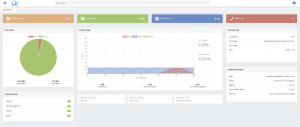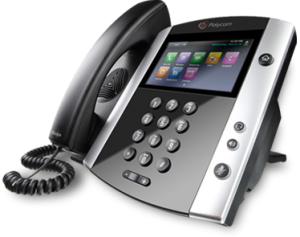The ideal solution for medium-sized businesses.
Communicate From Anywhere
Future CloudPBX offers a complete set of tools to allow you to communicate no matter where you are located. Take advantage of these functionality to make your business safe and connected. Take your office wherever you are.

Features of the 2nd EVO of the CloudPBX from the FUTURE.
Future CloudPBX EVO-II Features List.
Boss/Secretary + Whitelist.
Black List.
Busy Lamp Field (BLF) Support.
Call Back.
Call Flow Control.
Call Forward (busy, no answer, unconditional).
Call Monitoring.
Call Pickup.
Call Parking.
Call Recording.
Call Screening.
Call Spy.
Call Transfer (blind, attended).
Call Waiting.
Callback Services.
Caller-ID.
Dictation.
DISA (Direct Inward System Access).
DND (Do Not Disturb).
Direct Inward Dial Numbers (DIDs).
Find Me/Follow Me.
Hunt/Ring Groups.
Music on Hold.
Outbound/Inbound Routes.
PINSets.
Pickup Groups.
Personal Assistance (IVR).
Personal Recording/Notes.
Remote Substitution.
Remote Call Pickup.
Route by Caller ID.
Speed Dials.
Three Way Calling.
Video Calling.
Voicemail.
Voicemail to Email.
Voicemail Broadcast.
Wake-up Calls.
Barge.
Call monitoring.
Call queues.
Call recording.
Caller Name Lookup.
CDR (Call Details Record).
Conferencing (on-the-fly).
Customer account codes.
Hot-desking.
Hunting groups.
IVR / Auto-attendants.
Listen to agent.
Pick-up groups.
Queue priorities.
Queue VIP list.
Ring group strategies.
Reporting.
Time-based routing.
Whisper to the agent.
Stutter Dial tone for Message Waiting.
Voicemail to email.
Voicemail Groups.
Web Voicemail Interface.
Direct dial to operator.
Call limited by duration.
Least Cost Routing.
Integrate Billing System.
Real Time Supervision (SwitchBoard).
Integrate Call Recording Management.
Call encryption (SIP TLS, sRTP).
Authorization codes.
Phone Lock.
Intrusion detection and blocking (Fail2ban).
Limiting or blocking of outbound calls.
Password strength indicator.
PIN-protected outbound calls.
User permission management.
Secure password auto-generation.
Weak password report.
HTTPS.
OpenVPN.
Low bandwidth.
Unlimited Users.
Screen Sharing.
Secure Rooms.
Chat.
Call History.
Call Origination.
Call Waiting.
Call Recording.
Do Not Disturb.
Follow Me.
Presence.
Visual Voicemail.
Voicemail.
Voicemail Greetings Management.
lpc10, slin.
g711 alaw, g711 ulaw.
siren14, siren7.
g726, g726aal2.
speex/16/32.
adpcm, testlaw.
gsm, lilbx.
h261, h264, h263p, h263.
IAX2.
PRI/T1/E1/R2.
Analog/FXS/FXO.
Simple to Use.
Low bandwidth
Unlimited Users.
Screen Sharing.
Secure Rooms.
Audio Conferencing
Call Recordings Access.
One Number Reach.
Multiple Devices per User.
Personal Call Log.
Personal Extension Settings.
Personal IVR.
Voicemail to e-mail.
Visual Voicemail.
User Portal: Access to Voicemail, Recordings, etc.
Unleash the power from the future.
FuturePBX Call & Call Center Features
The PA (Personal Assistant) allows for advanced control of a user’s voicemail system. It is somewhat similar to the Follow Me feature; however it gives callers more control. In essence, the PA is a mini-IVR (interactive voice response) for voicemail.When a caller reaches a user’s PA, they are presented with a recorded message. This message would indicate to them that there are options in addition to simply leaving a message. Typically, PA voicemails would give callers the option of leaving a message OR attempting to contact the intended party. PA can be configured to work with ‘unavailable’ and/or ‘busy’ voicemails.
For example, a caller reaches your voicemail, and is given the option to: press 1 to call your mobile, press 2 to reach the Florida office, press 0 to reach reception, or leave a message. This ensures that the caller is able to contact an appropriate party should they want to, or simply leave a message.
With Futurephone CloudPBX you can have multiple devices connected to a single extension number, for example John Smith has the extension 2000 which has connected several devices like Desktop Phone, Mobile Phone and a Sofphone installed in his computer, all these devices have the same extension number and when someone calls John, he will have the possibility to answer the call in any of the three devices. You can also manage from any of the devices call diversions, DND, follow me, voice mail, etc.
The voicemail to email PBX feature is a subscribed feature which when enabled, sends a copy of a user’s voicemail message to their specified email address. This feature allows users to listen to their voicemail messages via email or smart-phone device without having to physically use their desk-phone.
This feature has many inherent advantages, however due to requirements which necessitate the use of an external email server, subscription to a email service may be mandatory in order for this feature to function.
Your PBX is capable of grouping together many extensions into a single dialled extension. For example, if there are sales agents with extensions 220, 221, 222, and 223, then it is possible to assign a ‘Sales’ ring group which when dialled, will call all of the phones simultaneously.
Additional options can be configured such as: the ring strategy (ring all, ring sequentially, ring first available, and more), max ring time, announcement (to be played to the caller prior to dialling the group), whether to ring or play music, and more.
This feature is useful for IVR’s and call queues as incoming calls can be directed to an entire department with ease. This can also be useful if you wish to contact a group of phones internally (technical support agents). It is as simple as assigning those phones to a ring group (such as 601), and dialling it from any system phone.
The conference room feature of your PBX works to create a meeting room whereby users (both internally and externally) can call in and talk to one another. Conference rooms can be moderated by an admin user, and as well can be password protected to prevent unwanted callers from accessing it. The conference room can be accessed by users internally by dialling the conference room access number. The conference room can be accessed by external users by entering a numerical code after dialling a number.
For example, your conference room can be linked to your IVR message without anyone ever knowing. A caller would dial your regular business number, and once they reached the IVR message, they would enter the access code (#XXX) followed by the password, and they would be connected to the conference room.
Conference’s can easily be setup by contacting one or more parties via extension dialling. This conference, however, has restricted functionality, and may not work with outside parties.
A Call Queue is a feature which places callers into a regulated on-hold system of priority such that the caller with the highest priority (usually the caller on hold the longest) is answered before a caller with a lower one. Call Queues are extremely useful when handling a large number of incoming callers at the same time. Callers can be placed in a queue to be answered by the first available representative (support representative), or placed in a queue which can be answered by a specific agent (sales rep.). While a caller is waiting in a queue, special music on hold and/or messages can be played to them. Users are also able to log in and out of certain queues. This can be useful for users who wish to take lunch and not have their phone ring, or for situations where additional agents can be of use.
Your PBX support the ability to add Remote Users. A Remote User is a phone system user who is not located in the office, yet still connects and has the same functionality of an office user. The Remote User must have their remote phone configured to connect to the PBX located at the central office.
Remote Users allow an individual to work from anywhere in the world, and calls can be placed and received just as if they were sitting at a desk in the office. This is an extremely useful feature which can be taken advantage of in a multitude of situations and scenarios (e.g. employees working from home, employees who are often travelling, employees in another city, country, and more).
The PA (Personal Assistant) allows for advanced control of a user’s voicemail system. It is somewhat similar to the Follow Me feature; however it gives callers more control. In essence, the PA is a mini-IVR (interactive voice response) for voicemail.When a caller reaches a user’s PA, they are presented with a recorded message. This message would indicate to them that there are options in addition to simply leaving a message. Typically, PA voicemails would give callers the option of leaving a message OR attempting to contact the intended party. PA can be configured to work with ‘unavailable’ and/or ‘busy’ voicemails.
For example, a caller reaches your voicemail, and is given the option to: press 1 to call your mobile, press 2 to reach the Florida office, press 0 to reach reception, or leave a message. This ensures that the caller is able to contact an appropriate party should they want to, or simply leave a message.
Call recording is a useful feature which enables a calling or called party to record a conversation using their phone. Call recording can be set to always record, never record, or record strictly on an on-demand basis.
Call recording can be useful for training and/or quality assurance. Some jurisdictions/countries do not allow a call to be recorded without prior consent, please check your local laws before recording a phone call.
FuturePbone CloudPBX SwitchBoard is an interface with which you can monitor and manage the different activities of your PBX. The different modules that this application has are: My Extension, Trunk, My Queues, Extensions, Queues, Conferences, Parking Lots, Queues Stats Summary, Queues Members Summary, Queue Calls, Queue Overview, Queues Calls Counter.
The user will have the possibility to enter the User Portal where you can manage the following options:
Call Forward
Call History
Call Waiting
Call Recording
Do Not Disturb
Follow me
Presence
Visual Voicemail
Voicemail
Voicemail Greetings Management
etc…
The ideal solution for medium-sized businesses.
Professional communication at its best
Shared Cloud PBX is the ultimate hassle-free communication solution for medium-sized businesses that want to reap the benefits of enterprise-level telecommunications. Stay out of trouble and get connected to the world.
- Initial setup within 48 hours
- Upgrade when you need it, within 24 hours
- Private Branch Exchange without the need for devices
- Talk at the lowest costs globally
- “Per second” billing step
Upgrade your telecommunications infrastructure, starting from just €39,90 per month!

We guarantee seamless operation and quality.
- No delays whatsoever. Our servers operate within the best data centers in the world!
- Enjoy HD call quality! We offer G.729 audio codec availability.

